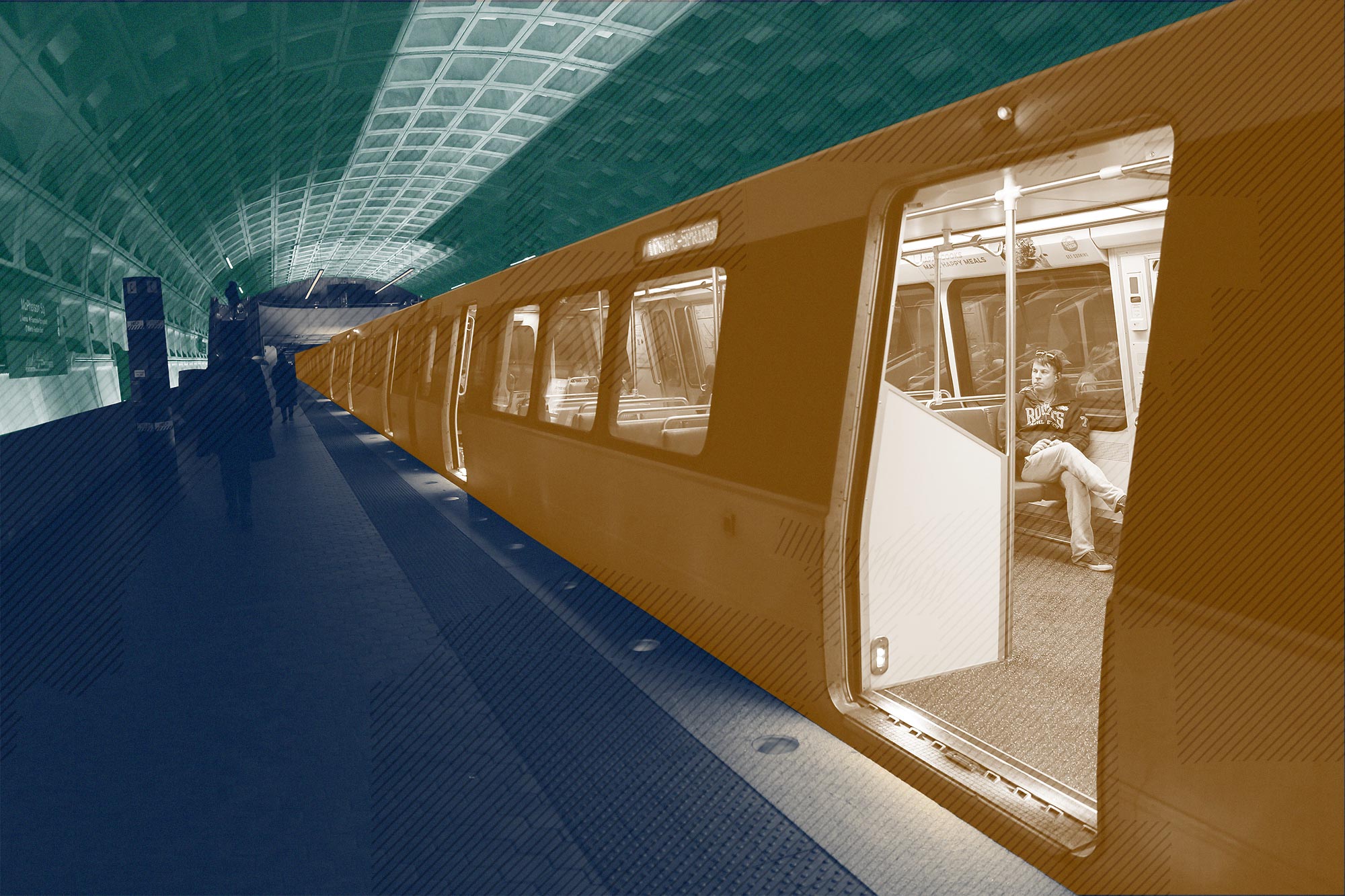Battle Over Fare Evasion Decriminalization Boils Over in D.C.
Mayor Muriel Bowser vetoed decriminalization legislation that advocates say would curb the discriminatory policing tactics associated with fare evasion enforcement. Today, the D.C. City Council will decide if it will override her veto.

In February 2018, Diamond Rust was on a bus in Washington, D.C., with her two toddlers when an undercover Metro Transit Police officer slammed her to the ground and arrested her. The arrest left the 20-year-old with a fractured knee, 12 oral stitches, four broken teeth, open facial wounds, and traumatized children.
Her alleged crime? She didn’t pay the $2 bus fare.
Bus or train fare evasion, a criminal offense in the district since 1978, is punishable by up to $300 in fines and as many as 10 days imprisonment. Though more than 2,000 people were arrested for fare evasion between Jan. 1, 2016, and Feb. 5, 2018, a majority of evaders were instead given a citation/summons to appear in criminal court, according to a report from the Washington Lawyers’ Committee for Civil Rights and Urban Affairs. During that time, 30,000 people were stopped for fare evasion; 91 percent of those stopped and given citations were Black.
D.C. community groups campaigned under the slogan #ITSNOTFARE to call attention to discriminatory policing tactics and the criminalization of poverty associated with fare evasion enforcement. On Dec. 4, 2018, the D.C. City Council passed the Fare Evasion Decriminalization Act to remove the criminal penalty associated with fare evasion and lower the associated fine to $50.
But on Jan. 16, D.C. Mayor Muriel Bowser vetoed the legislation. “We should not encourage lawlessness on Metro,” she wrote, “which could exacerbate public safety concerns on our Metro system and in our city.” The Washington Metropolitan Area Transit Authority (WMATA), which includes the transit police, made the same public safety argument in a press release featuring cases of people who had evaded a fare and later committed a more serious crime, like assault.
These arguments are rooted in the broken-windows theory of policing that holds that minor crime encourages more serious crime. But Bernard Harcourt, a professor at Columbia Law School, found that New York City’s 1990s crime decline under NYPD commissioner and broken-windows booster William Bratton occurred in other cities that did not implement such policing. “The bottom line is that the broken windows theory—the idea that public disorder sends a message that encourages crime—is probably wrong,” Harcourt concluded in 2002.
Mayor Bowser and WMATA’s insistence on criminalizing fare evasion is also rejected in many other places. In 2015, King County, Washington (which contains Seattle) decriminalized fare evasion for young people. In early 2017, Portland, Oregon, prosecutors said they would not pursue fare evasion cases unless they involved “chronic offenders”; about one year later, Manhattan District Attorney Cy Vance made a similar promise. And fare evasion isn’t a crime in D.C. neighbor Virginia.
Today, the D.C. City Council will decide if it will override Mayor Bowser’s veto.
“The bill the council passed holds people accountable for their actions with a civil fine, but without condemning them to a lifetime of doors closed in their faces over a $2 fare,” D.C. City Councilmember Charles Allen said in a statement last week. “D.C. can’t succeed if we continue failed policies of the past at the expense of our residents’ futures. I will be moving to override the veto of this criminal justice reform.”
